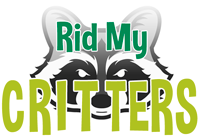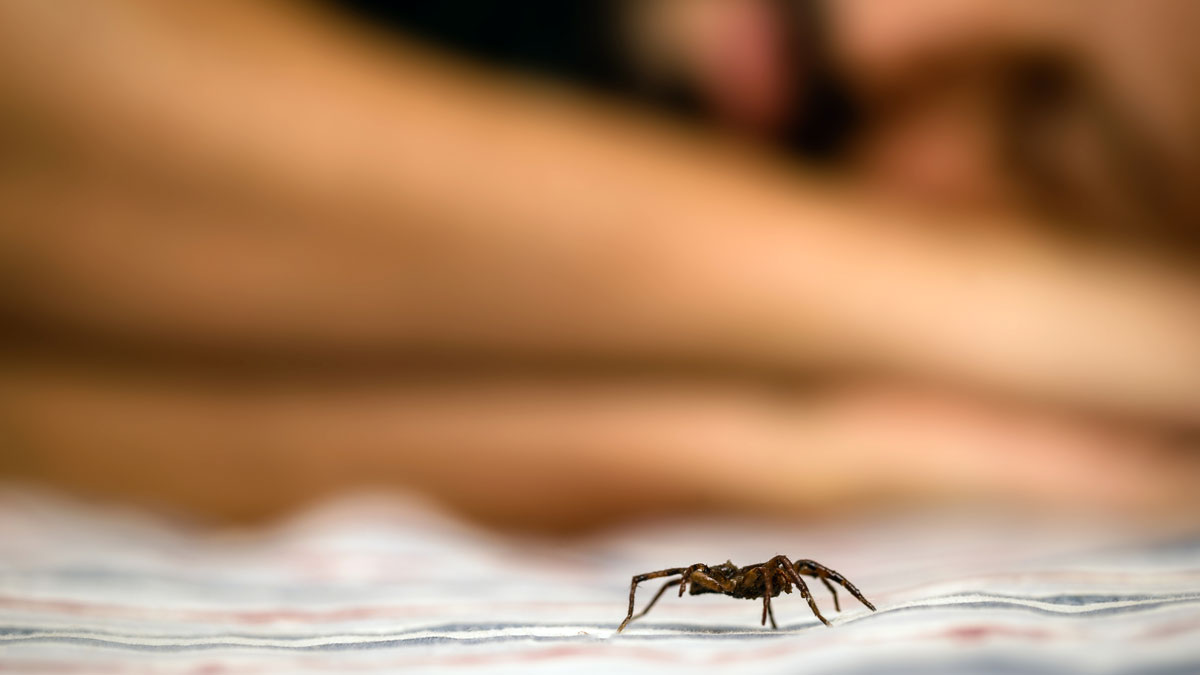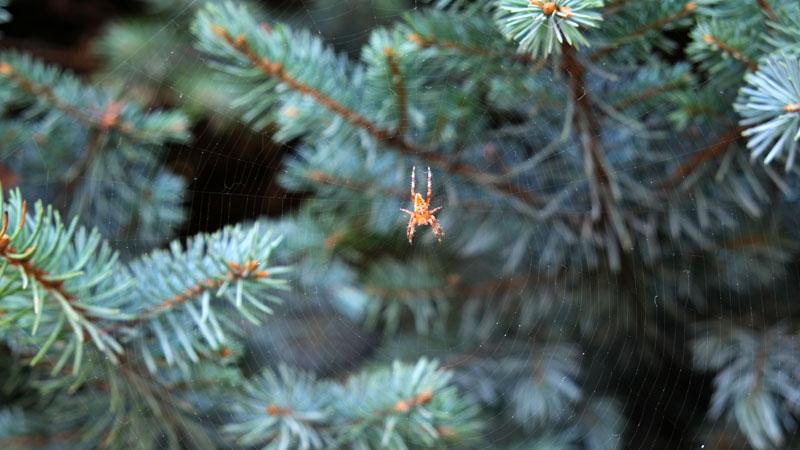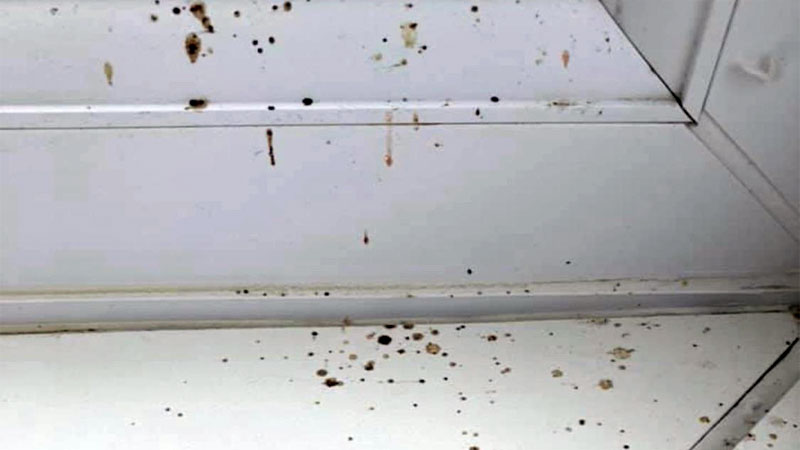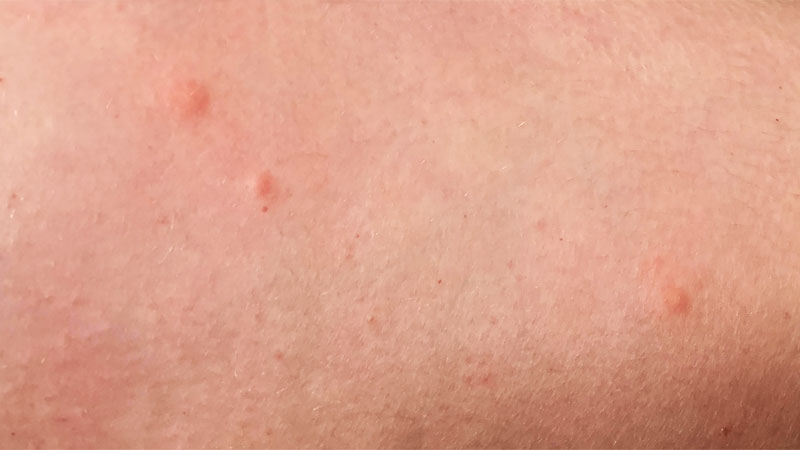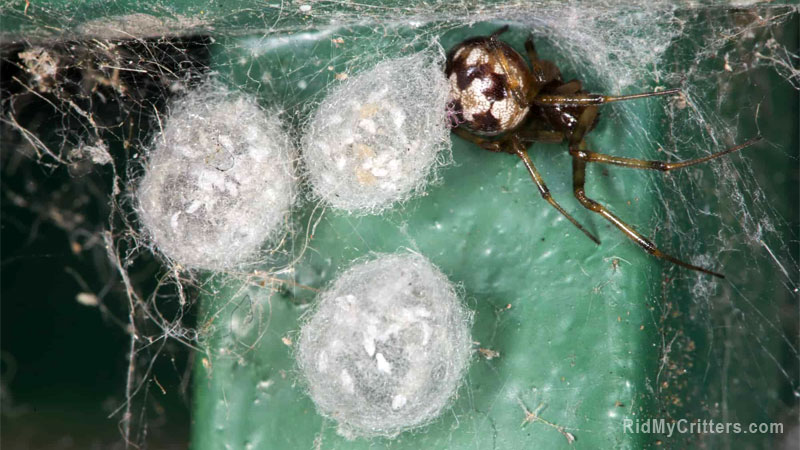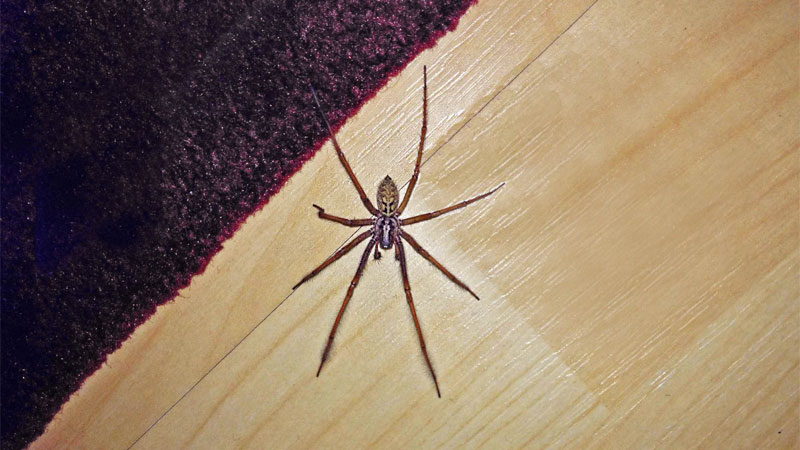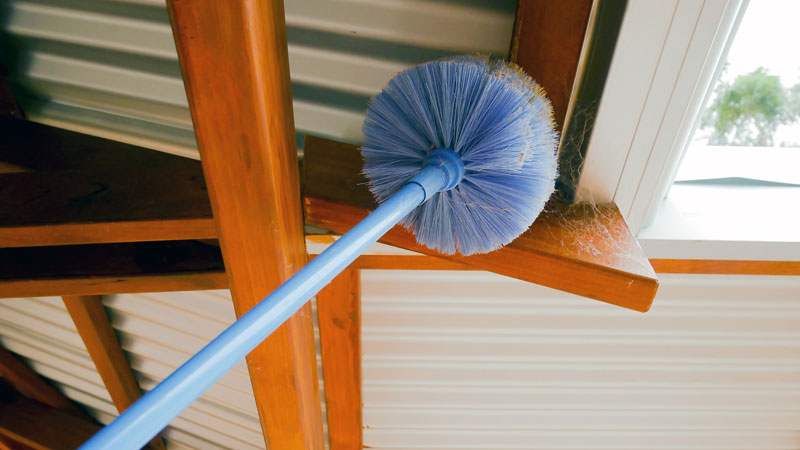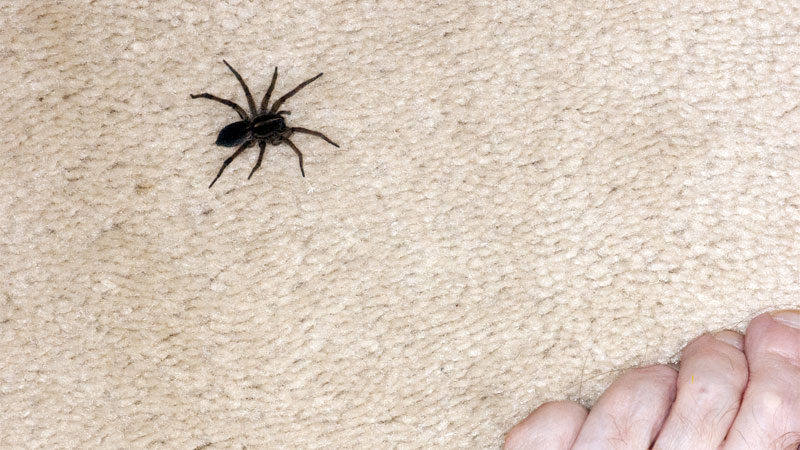Oh, the joys of arachnophobia! One of the most common pest phobias out there, some people have legitimate fears due to allergies or the fact that having spiders often means you have an underlying bug infestation.
Today we’re going to take a look at how spiders get into your room, signs that they’re present, and where to find them. While we’ll be focusing mainly on the bedroom, this guide can be applied to any room.
How Do Spiders Get Into Your Room?
Unless you already have a spider population in your home, it might not be clear how the spider got into your room in the first place. Let’s start off by taking a look at a couple of the ways these little guys sneak in.
Just Visiting
Sometimes spiders wander into your room from other parts of the home, an open window, or via cracks in the baseboards that lead into crawl spaces or other voids in the wall. Many common house spiders get around this way.
Meanwhile, hobo spiders and wolf spiders are more likely to wander into your room from an open (and unscreened) window while hunting for food and will often wander back out if they find the proverbial cupboard bare.
In other cases, longer-living species come in to escape the winter cold and may leave come spring.
Hitchhiking
Much like Ford Prefect and other interplanetary visitors, spiders often simply hitch a lift from one environment to another. They can wander into your purse or backpack, accidentally land on your clothing, and (rarely) be in your groceries or even brought in on your Christmas tree.
In fact, the myth of deadly spiders being shipped in bananas is partially true. Brazilian wandering spiders (Phoneutria spp.) earned the nickname of banana spiders because they are known to be found in banana shipments and can cause serious symptoms if they bite.
Thankfully, only about one in every 19 spiders found in banana shipments is a Brazilian wandering spider and bites are extremely rare.
Signs There is a Spider in Your Room
There are many different spiders known to make a home in your home. Unfortunately, many of them simply aren’t as easy to spot as you might like. Here are a few ways to tell if a spider might be chilling out in your room.
Feces
Spider poop is rather messy, since spiders have a liquid diet. Remember, their venom liquifies the innards of their prey, which they then drink. As a result, their droppings will be runny and look like someone dripped or splattered liquid on your walls or floor.
Spider feces is most often seen in corners or along the wall, although active hunters such as wolf spiders may leave their poop in other places.
Spider Bites
Nobody likes to be bitten, but it’s often the first sign that you have a spider present. Much like a lot of bedtime biters, spiders aren’t being malicious when they bite you. Remember, spiders don’t actually try to attack you in your sleep and might have simply wandered into your bed looking for food.
Alternatively, they could have been hidden amongst your clothing, or were stepped on or otherwise bumped into. In such cases, the bite was simply defensive in nature.
Depending on the species of spider, the bite will likely be harmless or mild (unless you have an allergy), and even bites from infamous species such as black widow spiders or the brown recluse spider are rarely life-threatening but can still produce a severe reaction.
Visual Sighting
While this might seem like the most obvious way to tell if a spider’s in your room, a little caution is still needed. That’s because most daddy long-legs sightings are actually harvestmen, which aren’t arachnids at all.
Spider Webs
Webs are a great indicator that an arachnid is present, although it’s not always caused by spiders. If you see messy webs on a houseplant, the culprit is most likely spider mites.
Cobwebs are messy webbing created exclusively by the Linyphiidae and Theridiidae families and actually have a different silk composition. Cobweb is actually very useful, even if the spiders themselves are unwelcome.
Regular spider webs may be in the famous net pattern or woven into funnels and are by a wide range of spiders. However, hunting spiders don’t build webs and instead use their silk (if they make it at all) for the purpose of climbing. Spider silk is also used by spiderlings as parachutes to allow them to disperse after hatching (think Charlotte’s Web).
You’ll most commonly find webs in the corners of your room or other angled areas (such as where the wall and ceiling meet) since this is a place where bugs often travel. It’s also more common to find webbing in undisturbed locations, so if you regularly Swiffer your room, there’s a good chance any webs will be concealed behind or under furniture.
Finding Spider Eggs
What might be more important than finding spiders is locating their egg sacs before those eggs have a chance to hatch. Sacs can be flat, round, or teardrop-shaped and either off-white, gray, or brown in tone.
As with webbing, spiders prefer to lay their egg sacs somewhere relatively undisturbed. Under furniture is a common spot, and some spiders will also lay their sacs in their webbing. They’re also far more likely to be placed where food is abundant, so check where any known bug infestations are.
One notable exception is the wolf spider, which actually carries her egg sac with her (and also does many other fascinating things). Locating sacs may be a little difficult, but if you find and destroy them, it will prevent hundreds of spiderlings invading your home down the road.
Hunting Spiders That Are Hiding
What happens if you can’t get the spider to come out into the open? Unfortunately, you’re going to have to go after them yourself.
If you’re lucky, they’re hiding somewhere close to their web, awaiting that telltale vibration that something’s caught. Grab your vacuum cleaner and use the edge attachment or crevice tool to hit any tight spots near the web, such as behind furniture or picture frames.
Keep an eye out for any bug infestations and focus your search in those areas, since spiders prefer to hang out near their food. And if those don’t work, try using a UV light. Spiders are phosphorescent, so this can sometimes be a good way to spot them, although not always easy.
How to Lure a Spider Out of Hiding
So we’ve discussed ways to spot the presence of a spider, but what if you can’t find the spider itself? Cleaning is one great method to chase them out into the open.
Carefully check any boxes or containers that have some form of access (such as open handles). Clean around fixtures with a feather duster or Swiffer.
Gather your laundry and chuck it all directly into the wash. Any spiders hiding in the pile will either expose themselves or perish in the washing machine.
Chasing Spiders Out of Hiding Sith Repellents
Let’s say you still haven’t found any spiders and want to make sure you aren’t simply missing them as you look. There are a few more things you can do to flush them out.
One popular method is to use essential oils. Both eucalyptus oil and lavender oil are popular choices, and not just because they smell good. These essential oils repel a wide range of bugs, including many arachnids. While your mileage may vary on the success of using these oils, you won’t regret the pleasant, relaxing smells they provide.
Another method doesn’t smell as pleasant but can be a great alternative all the same. Mix equal parts water and white vinegar and do some cleaning.
The vinegar does a great job of cleaning many surfaces (be sure to test first if you aren’t sure if the vinegar is safe on a surface) and can chase off a wide range of pests, including spiders. Add a bit of citrus for extra effectiveness and tone down the acrid smell of vinegar a little bit.
Keeping Spiders Out of Your Room
Finding spiders is one thing, and there are all sorts of ways to get rid of them, such as diatomaceous earth, steam cleaning, vacuuming, traps, or a good old shoe.
But before you end up having to resort to bombing or even hiring an exterminator, why not be proactive and prevent them from getting in to begin with? Here are some ways to keep spiders out.
Inspect Suspicious Packages
Spiders prefer to avoid humans (yes, even the big or dangerous ones), so they are more likely to hide in your attic or basement. This is also where the most creepy crawlies are, meaning more food sources.
The problem is that spiders might set up shop in cardboard boxes being stored in these locations. Thus, before bringing anything out of storage, sit down and go through it. If there’s a chance a spider got inside, you’ll want to evict them before taking the box to some other room where they’ll take up residence.
Even better, replace all of your storage containers with Tupperware containers. Plastic, sealable containers will protect your belongings from potential water damage if the basement floods or roof springs a leak, and pests won’t be able to get into them while they’re closed – not even bed bugs.
Keep It Clean
Not only is cleaning a great way to lure spiders out of hiding, it’s a great way to keep them from visiting in the first place. A clean room means fewer hiding places. It also means you’re less likely to have other bugs getting in.
As food is the primary reason a spider will wander into your room to begin with, making sure there are no other bugs can double as a natural spider repellent.
But even if you aren’t worried about attracting spiders, it’s a proven fact that a clean and clutter-free room greatly reduces stress and anxiety in general. This can be especially important for people with mental health issues or a stressful career, so you’re killing two birds with one broom.
Seal Your Space
Check around your room for any cracks or crevasses. Caulk around windows, doors, and along baseboards. Make sure your window screens are intact and replace any damaged ones.
Final Notes
It’s never fun when you have bugs in your room, especially if they’re a venomous spider. But even if you generally don’t mind having a spider in your room, it’s important to determine what types of spiders are present to ensure there’s no risk of severe bite reactions.
It can be tough to find a spider’s hiding spot if they haven’t built a web, and there’s always a risk of a full-blown spider infestation if there are eggs present.
- How to Get Rid of Hawks - March 8, 2024
- How to Get Rid of Pill Bugs (Rolly Pollies) - March 1, 2024
- How to Get Rid of Groundhogs (Woodchucks) - February 5, 2024
